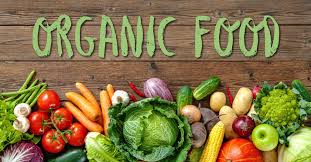For many companies, profit is a top priority, and it seems like ethics is not a part of their business philosophy. Even though the right to food is one of the fundamental human rights, big corporations are ready to risk their customers’ lives just for an extra dollar.
The quality of products sold on the market is why so many people opt to buy organic food. If you examine product labels a bit more thoroughly, it’ll be clear why that’s the case.
According to organic food statistics, 92% of corn produced in the US is genetically modified. The same goes for 94% of soybeans and cotton. Considering that corn is used in many food and industrial products, it’s likely that we’re consuming GM foods daily.
Is GMO Bad for You?
GMO stands for genetically modified organism. The term GMF is also commonly used where the “F” stands for food.
The truth about the dangers of GMOs is unknown, as there’s no real evidence to back up the claim they are harmful. Some believe that GMOs cause some illnesses, but there’s no scientific proof.
For example, food allergies in children increased from 3.4% between 1997 and 1999 to 5.1% between 2009 and 2011. Many people are convinced that the cause is GMF. However, further research is necessary to prove or disprove such a claim.
Others claim that genetically modified food increases the risk of cancer. So far, no evidence has been found regarding the link between cancer and GMOs.
We can conclude that whether genetically modified food is good or bad for our health is open for discussion. Of course, more research is needed to make an informed decision. Still, we can’t overlook the fact that companies make a lot of money from producing GM food, and they also spend a hefty sum on marketing to make their products look good.
One of the biggest US companies producing GM food, Monsanto, spends tens of millions of dollars annually promoting their products. In 2016, it spent $64 million on advertising, but there were times when it invested even more. In 2011, the company spent $100 million on marketing.
What’s important to note here is that with excellent marketing campaigns and enough money spent on promotion, any product can seem like a healthy option.
Why Organic?
Genetically modified foods are created to bring profits to those who sell them. They are great for the wallet, but not as much for our health.
According to scientists, organic products are richer in ingredients we need for our bodies to function properly. For example, organic produce contains up to 69% more antioxidants. It also has up to 100 times fewer pesticide residues.
Genetically modified food may be safe, but it’s not even close to being as nutritious as organic food. Yes, organic food is less affordable, but if you need a dose of a particular vitamin, you’ll need to eat twice as much GMF.
Conclusion
In today’s world, the right information is just a click away. The problem is, there’s no relevant information about what’s true or false anymore. In the sea of fake news and marketing campaigns aiming at consumers, you can’t be sure who’s lying and who’s not.
Organic food has been around since forever. Sticking to the good old ways and eating what our ancestors knew was good is the only sensible option. Don’t risk your health and life by buying products that are not proven to be as healthy and nutritious as organic products.






































